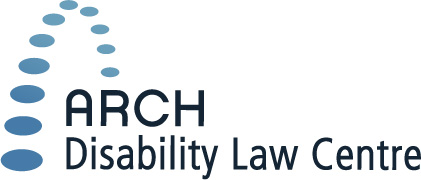MEDIA ADVISORY – Council of Canadians with Disabilities Applauds Decision of the Supreme Court of Canada
MEDIA ADVISORY
January 25, 2019
COUNCIL OF CANADIANS WITH DISABILITIES APPLAUDS DECISION OF THE SUPREME COURT OF CANADA
Today, the Supreme Court of Canada (SCC) released a landmark decision in S.A. v. Metro Vancouver Housing Corporation. This case is of national importance and significance because it ensures that many persons with disabilities can continue to access vital social programs they rely on to maintain an equal and adequate standard of living.
The Council of Canadians with Disabilities intervened at the SCC and was represented by ARCH Disability Law Centre.
Why This Case is Important
In S.A.’s case, the housing authority wanted to take into account the value of a Henson Trust when deciding whether to give her a rent subsidy. This is the SCC’s first opportunity to consider the nature of Henson Trusts (also known as absolute discretionary trusts). Henson Trusts are intentionally designed so that family members can set aside money for persons with disabilities without limiting those persons’ entitlement to social assistance benefits. The trust is structured in a way that puts the trust property beyond the control of the person with a disability. This means that the property or value of the trust is not available to them and cannot count as an asset when determining eligibility for social programs. The SCC held that because a person with a disability has no enforceable right to receive any of the trust’s income or capital, an interest in a Henson trust is not an asset that can be considered when determining eligibility for a rent subsidy.
Jewelles Smith, Chairperson of the Council of Canadians with Disabilities says:
“The CCD is pleased by the Supreme Court’s decision in S.A. v MVHC. People with disabilities in Canada are disproportionately affected by poverty and must often bare the financial burden of cost-related barriers to their inclusion. The Court’s decision recognizes that absolute discretionary trusts play an important role as a vehicle that can assist persons with disabilities to meet their additional costs of living and ensure access to social assistance programs. This is essential for the full inclusion and participation of people with disabilities in society.
Contact: Dianne Wintermute, Staff Lawyer, ARCH Disability Law Centre
Phone: 416-482-8255 ext. 2226; Email: wintermd@lao.on.ca
-30 –
AVIS AUX MÉDIAS
25 janvier 2019
LE CONSEIL DES CANADIENS AVEC DÉFICIENCES ACCUEILLE POSITIVEMENT LE JUGEMENT DE LA COUR SUPRÊME DU CANADA
Aujourd’hui, la Cour suprême du Canada (CSC) a rendu un jugement remarquable dans la cause S.A. c. Metro Vancouver Housing Corporation. Cette affaire est d’une importance nationale car elle garantit à de nombreuses personnes handicapées le droit de bénéficier de services sociaux vitaux dont elles dépendent pour maintenir, en toute égalité, un niveau de vie adéquat.
Représenté par l’ARCH Disability Law Centre, le Conseil des Canadiens avec déficiences est intervenu dans cette cause.
Une cause importante:
Dans la cause S.A., la Metro Vancouver Housing Corporation voulait considérer une fiducie de type Henson comme un actif dans sa décision d’accorder ou non une aide au loyer à l’appelante. Pour la première fois, la CSC a pu évaluer la nature des fiducies de type Henson (également connues sous l’appellation de fiducies discrétionnaires absolues). Ces fiducies sont intentionnellement conçues pour permettre aux familles d’économiser pour leurs membres en situation de handicap sans limiter leur droit aux prestations d’aide sociale. La fiducie est structurée de manière à ce que le bien économisé soit hors de contrôle de la personne handicapée. Ce qui signifie que cette fiducie ne lui est pas accessible et ne peut être comptée comme un actif pour déterminer son admissibilité à des programmes sociaux. La CSC a décrété que puisqu’une personne handicapée ne disposait d’aucun droit exécutoire à recevoir tout ou partie du revenu ou du capital de la fiducie, une fiducie de type Henson ne pouvait être considérée comme un actif pour déterminer l’admissibilité à une aide au loyer.
Jewelles Smith, présidente du Conseil des Canadiens avec déficiences a déclaré:
« LeCCD se réjouit du jugement de la Cour suprême dans la cause S.A. c. MVHC. L’incidence de la pauvreté est disproportionnée chez les personnes handicapées qui doivent souvent supporter le fardeau financier du coût des obstacles à leur inclusion. Dans son jugement, la Cour reconnaît le rôle important que peuvent jouer les fiducies discrétionnaires absolues en aidant les personnes en situation de handicap à faire face à leurs dépenses supplémentaires et à accéder aux programmes d’aide sociale. Et c’est un prérequis pour la pleine inclusion des personnes handicapées dans la société. »
Personne contact: Dianne Wintermute, avocate interne, ARCH Disability Law Centre
Tél.: 416-482-8255, poste 2226; Courriel: wintermd@lao.on.ca
-30-


